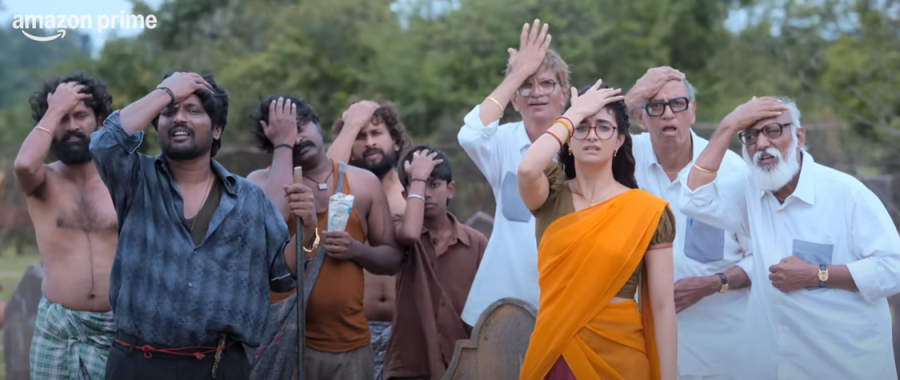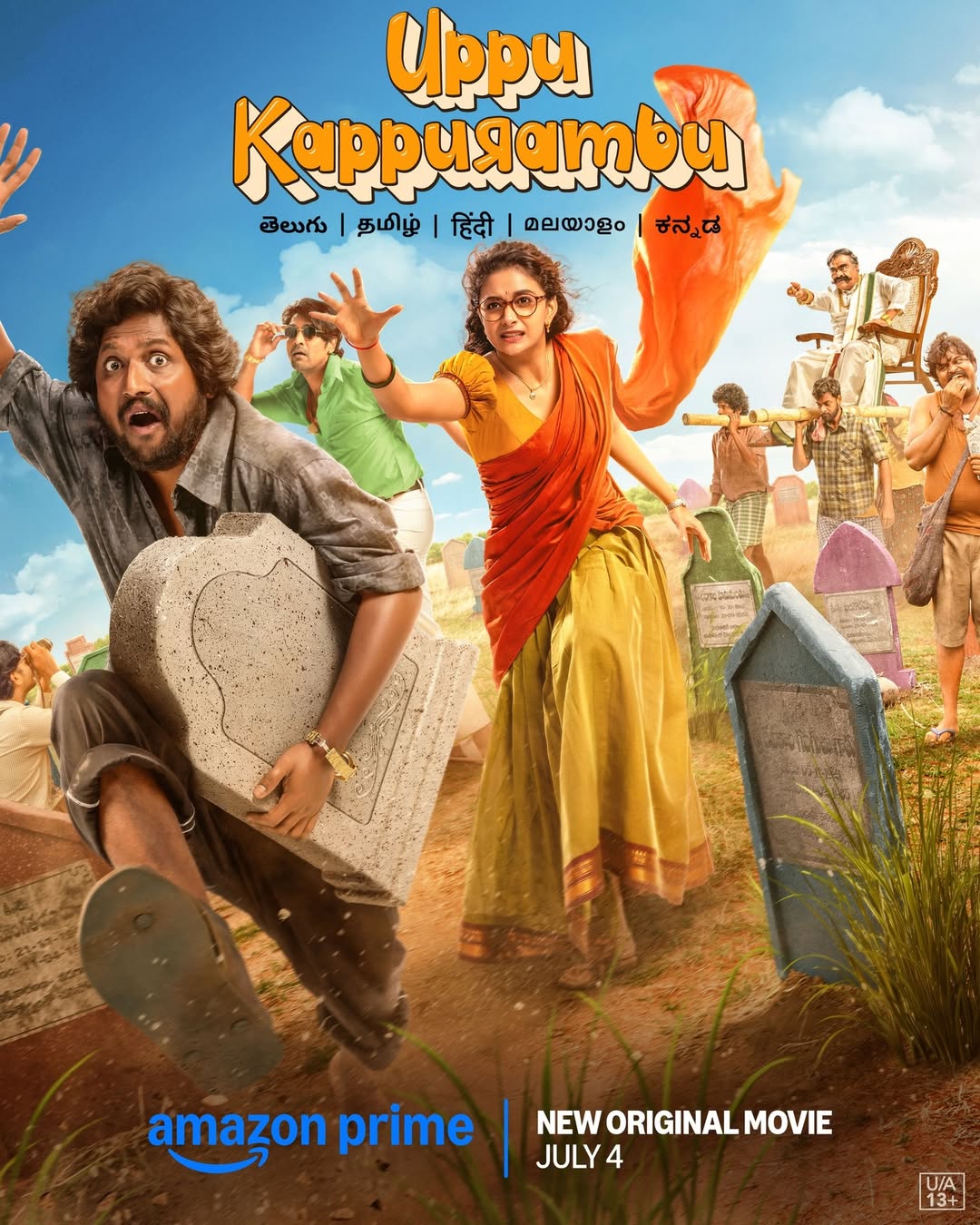Movies
The village that sold its graves
‘Uppu Kappurambu’ turns the absurd idea of villagers fighting over scarce burial land into a warm, satirical comedy.
Sanskriti Pokharel
Picture a frail man lying on his deathbed, but fate or rather, the strange rules of his village will not let him die. Now, picture a ‘Housefull’ sign, the kind you see outside a packed cinema, being hammered onto the gates of a graveyard. Absurd? Yes.
But in this village, death itself has become a privilege. Land for burial has grown so scarce that families are locking horns over the precious six feet of earth they hope to claim for themselves when their time comes. As grim and unsettling as this sounds, the movie ‘Uppu Kappurambu’ takes this morbid premise and spins it into an oddly delightful, satirical tale. The film invites us to laugh and also nudges us to think. It turns a fight over final resting places into a story that is both poignant and irresistibly entertaining.
Death is treated like real estate in this film, and the film finds its comic and moral heartbeat in that single absurd idea. In real life, a situation like this would have been morbidly dramatic, yet here in this movie, it becomes uproariously comedic.
At the centre of the film is Apoorva, played by Keerthy Suresh, an unlikely village head forced into leadership after her father dies. She is funny and fragile at the same time, and the performance lives in those tiny, human details. In the early scenes while addressing the crowd, she is clearly out of her depth. She hesitates before speaking, her voice stutters, and she fidgets with the edge of her sari as if trying to tuck her nerves into place. She stammers on the first few lines, makes awkward eye contact. Those little gestures make her easy to believe. They tell us she is new to the role and that courage, for her, is learned in public. Her performance anchors the film because she shows us how a person can be both insecure and brave at once.
In the film, traditional burial practices are enforced by a centuries-old prophecy, and even the notion of cremation sends someone fainting. When Apoorva suggests cremation to solve the space issue, the reaction is beyond shock. It’s physical. People faint. The villagers are stubborn clones of eccentricity who make the debate over burial space feel ludicrous.
Suhas Pagolu, who plays Chinna the gravekeeper, has a look of someone who has digested the village’s history and carries it in his shoulders. He treats graveyard rituals with both respect and a private sadness that the script smartly refuses to sentimentalise. Interestingly, he treats the graves as if they were old friends. He talks to the mounds that are oddly funny to watch. Moreover, his relationship with his dying mother is the emotional spine which evokes emotion.
Sasi’s script is funniest when it points out the gap between what people say and what they actually fear. People argue about lineage and who deserves a prime spot in the graveyard while quietly planning how to cheat the system. There are scenes where entire committees meet for hours and come away with nothing. The comedy grows out of those human delays. The filmmaker does not need to shout the message. Instead he allows the absurdity to reveal itself in detail.
Visually the film is warm and beautiful. The colour palette leans toward warm earth tones, the kind of browns and ochres that feel like soil and sun, with hints of green that suggest fields and small gardens. There is a soft mist that hangs over several scenes, giving the village a slightly dreamlike quality and cooling the bright colours into gentler shades. Lighting often feels natural, like the camera is catching real sun after rain or the pale light of a humid summer morning.

This visual mood does more than please the eye. It shapes how the story feels. The mist and the damp earth suggest a world that is both fragile and fertile, a place where old rituals and new arguments grow out of the same soil. The cinematography favours slow, deliberate movements and patient compositions that invite you to look and to stay with the characters. In short, the film’s visuals are tender, tactile and carefully observed, and they make the village feel lived in and alive.
However, the film is not always tidy. The first act sometimes spends too long establishing eccentricity. Several subplots appear and are left hovering. A village drunk gets a sequence that is funny but then vanishes. An extended subplot about property records feels like an interesting idea that could have deepened the satire if given more space. The running time swells a little.
The title of the movie ‘Uppu Kappurambu’ is quite interesting. Uppu means salt and Kapurambhu means camphor. Salt and camphor are common household items. Salt preserves and seasons. Camphor burns and clears. The film plays with both ideas. Burial as storage of legacy is like preservation. Fire, whether suggested or avoided, is the cleansing urgency that society resists. That opposition forms the thematic spine.
Overall, if you like a human comedy that sometimes leans into melancholy, you will likely leave entertained and thinking a little about what we claim as ours after watching this film.
Uppu Kappurambu
Director: Ani IV Sasi
Cast: Keerthy Suresh, Suhas Pagolu, Babu Mohan
Duration: 2 hours 16 minutes
Year: 2025
Language: Telugu




 15.12°C Kathmandu
15.12°C Kathmandu










